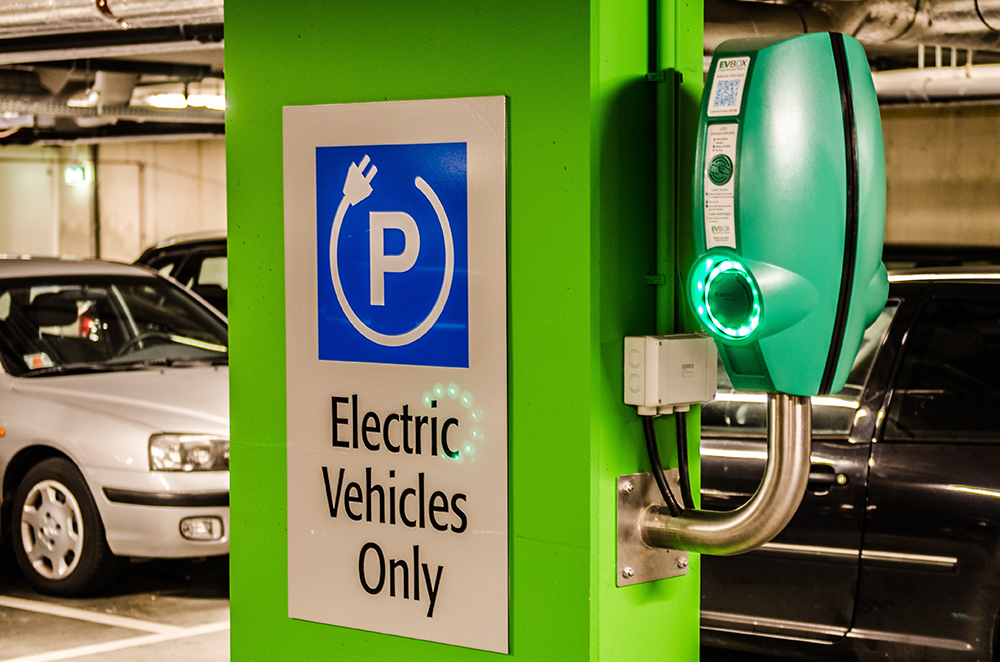For more than three years, Thailand has looked to stimulate investment in electric vehicle (EV) production. And while there has been some movement in this regard, the government is now working on a Thailand EV roadmap it hopes will shift things into overdrive.
In 2017, the Thailand Board of Investment (BoI) proclaimed 13 EV manufacturers were eligible to apply for privileges. These incentives included a multiyear period where taxes would be waived or significantly reduced along with import duty exemptions for cars and machinery. Much like Bangkok’s streets during rush hours, the plans have been dealing with gridlock.
Despite the application period for the program lapsing at the end of 2018, the Bangkok Post reported that BoI is still reviewing several applications from the approved list of EV manufacturers. While many companies have taken advantage of the privileges, which were for hybrid EVs, plug-in hybrid EVs and battery EVs, the scale of investment hasn’t been as large as the Thai government had hoped for, especially in terms of fully electric vehicles.
Toyota and Honda launched manufacturing facilities for hybrid EV projects which are now in operation. Nissan announced plans to invest THB11 billion (USD352.3 million) in a hybrid EV production facility at the end of the last year, but no other details about the project were revealed.
Additionally, the BoI approved plans from a quartet of plug-in hybrid EVs with Mercedes-Benz and BMW having proceeded to the production stage. However, neither firm invested more than THB1 billion (USD32 million).
Things have moved much slower when it comes to battery EVs, the only form that doesn’t require fossil fuel of any sort. Thailand lacks the infrastructure and technology required to build these locally. Currently, battery EVs are not available commercially in Thailand on a wide-spread basis.
Under the BoI incentive program, battery EV manufacturers can import completely built cars without facing an import duty for two years in order to test the local market. Companies that participate are then expected to begin manufacturing battery EVs within two years should they wish to continue selling battery EVs. This has left most battery EV plans stuck in park.
“The BoI allows us to import a small volume, which is not large enough to market in Thailand,” Roland Folger, Mercedes-Benz Thailand President and Chief Executive, stated. “We have been investing heavily to start the battery EV market in Thailand, while our 34 dealers have to bring their staff for training in a bid to support this new EV business, such as after-sales services and charging stations.”
The limited investment in all forms of EVs hasn’t helped the country’s struggling automobile industry. Car production in Thailand dropped 7.1 percent in 2019, according to the Federation of Thai Industries. Both local sales and exports fell and are expected to remain flat in 2020.
In an attempt to give the auto sector a jolt, the government is drafting a Thailand EV roadmap for production and usage that will be finalized sometime this year. The hope is that the plan puts the country in pole position when it comes to EVs.
But it needs to overcome a major roadblock in the form of skepticism from the car manufacturers themselves who want a clear government policy, investment criteria and incentives before investing further in EV production.
Finance Minister, Uttama Savanayana, told local media that the Thailand EV roadmap should build confidence and could be enacted within the next three years. In November of last year, the Thailand Automotive Institute (TAI) called on the government to look at its own EV roadmap after hearing car manufacturers had seen little to convince them that EV adoption was feasible in Thailand.
The TAI EV roadmap set a goal of producing 2.5 million cars in Thailand by 2030 with 60 percent those being sold domestically. In order to reach these figures, the TAI believes a strong push from the government is required that makes EVs more appealing to both make and purchase in Thailand.
“Thailand aims to be a production hub for EVs in the long term in order to maintain the country’s automotive competitiveness in Southeast Asia,” Adisak Rohitasune, TAI Acting President, told the Bangkok Post. “The government should emphasize the EV industry with attractive privileges and incentives for both demand and supply.”
See more: Electric tuk-tuks in Thailand need a jolt
On the road with the Thailand EV roadmap

Enticing car manufacturers to build more EVs is just one piece of the puzzle. Those cars must be purchased and driven by the local population which has been slow to embrace EVs because of the cost. But things are slowly changing.
Prices for EVs are expected to fall below THB1 million (USD32,000) as soon as 2020, according to the Electric Vehicle Association of Thailand (EVAT). Even with prices above the THB1 million, a shift is starting to occur.
EVAT found that the number of EVs, including hybrid and plug-in hybrids, registered in Thailand last year rose significantly. There are now 153,184 vehicles on the road, but less than 1000 were fully electric. Data from the Thailand Department of Land Transport showed that 25,180 EVs were registered in Thailand last year with 20,056 receiving paperwork in 2018.
For the second January in a row, Bangkok was shrouded with dust and unhealthy PM2.5. The Thai government even went as far to mull banning private cars, but nothing came of it. Instead, the Department of Land Transport unveiled incentives to promote the use of clean energy vehicles in the country.
This may help on a smaller scale, but it does all come back to the cost of EVs. This is why the government’s EV roadmap will seek to address issues from the consumer side as well.
“To encourage consumers to shift to EVs on a broad scale, EV prices, which are more expensive than fuel-powered vehicles, must be addressed in the master plan,” Uttama stated. He added that the Hong Kong model of offering discounts to consumers buying EVs could be an example for the Thai government to consider.
Other mooted changes to promote EV usage in Thailand proposed by EVAT in a 2019 report include requesting the Airports of Thailand Limited and Industrial Estate Authority to purchase EVs and setting aside of a portion of the government’s vehicle budget to go towards EVs. These could be included in the government’s roadmap in some form. Uttama did not confirm any specifics, only saying some parts of the plan had already been drafted.
Power supply
The Thailand EV roadmap will also need to address a third key area: infrastructure. While charging stations and EV charging logistics are being developed, the government is keenly aware that a clear plan is needed to ensure demand is met on this front. The BoI has stated that it expects 7,000 EV charging stations to open during the next few years with an estimated 500 currently in operation.
“There are many charging models in the world, such as those from Japan, Germany and the US, but any model that is picked must meet Thailand’s safety standards, Uttama noted. “The country’s electricity supply must also be taken into consideration. Car makers stand ready to invest in EV charging stations in Thailand, but they want to know what kind of support the government will offer.”
Batteries also present a unique challenge, but one the government has already prepared for. The Excise Department announced that it will charge a fee for the tracking of battery demolition or recycling. The fee, which will be passed on to consumers, is set to take effect in 2021 and will be refunded after the vehicle owner has returned the batteries to a car distributor.
Regardless of the challenges, some experts think it is only a matter of time before Thailand embraces EVs.
“The technological advances in power storage together with the urgent need to improve air quality in the cities to compensate for the consequences of urban development will fuel the growth of EV’s popularity tremendously,” Paul Flipse, Head of Climate Change and Sustainability Services at KPMG Thailand, said in a report. “It can be anticipated that the market penetration of EV in Thai society is undeniable and inevitable. Auto industry and power industry have to reassess their business model and prepare for the technological and behavioral changes.”
Click here to read the full article in the Norway-Asia Business Review Magazine.


































